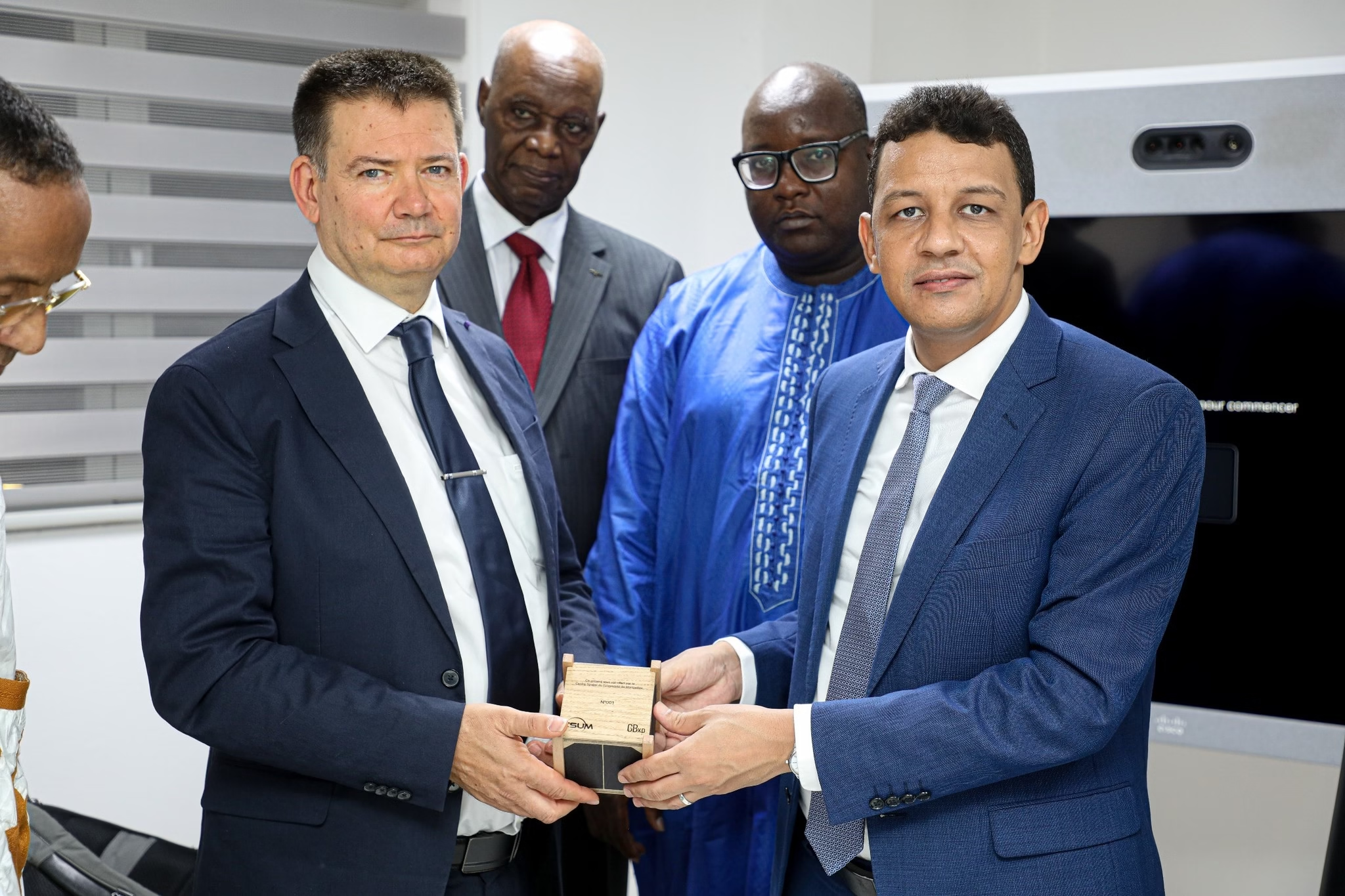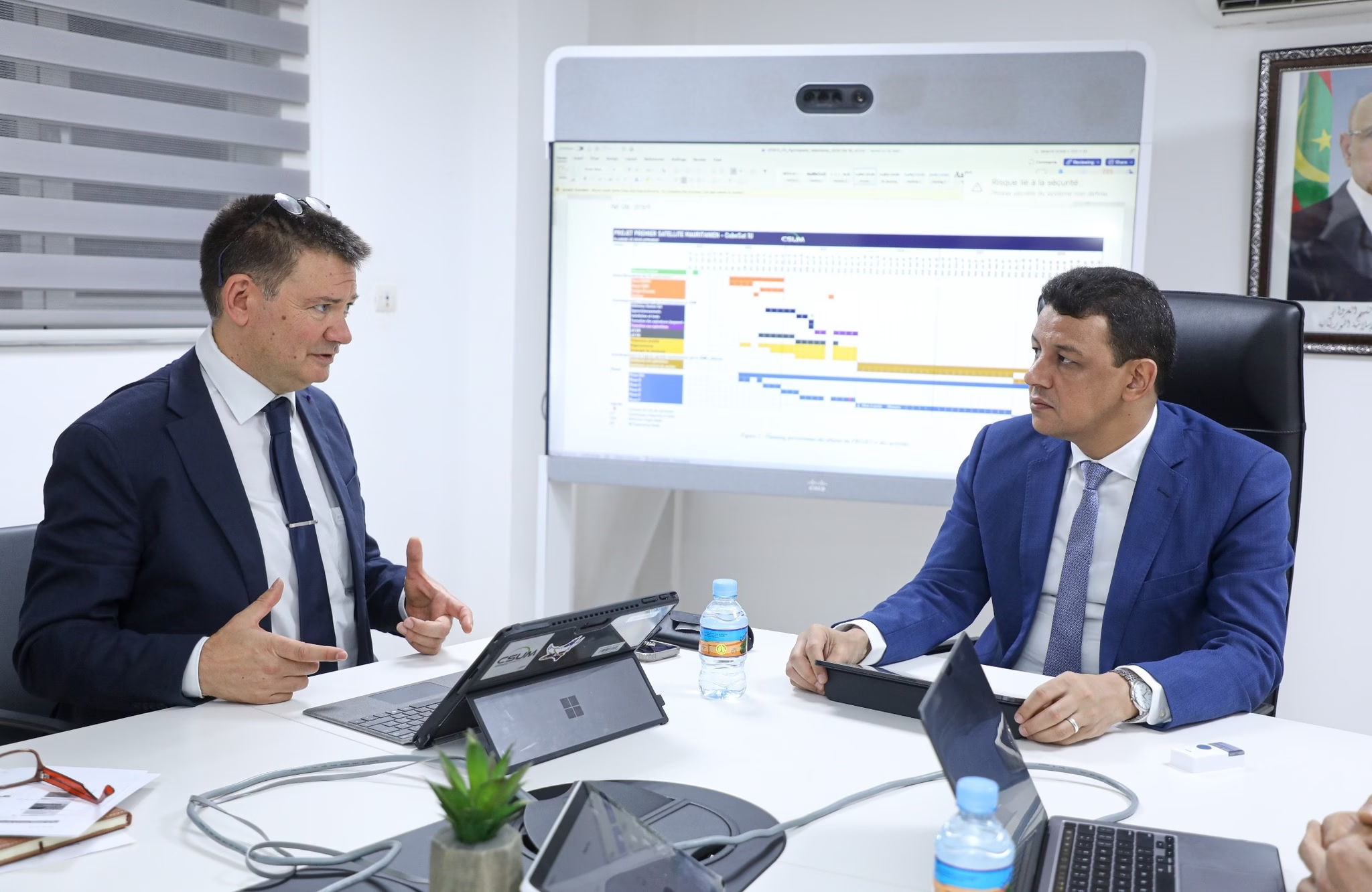Mauritania to Establish Nanosatellite Programme for Sovereign Space Capability


The Ministry of Digital Transformation and Administrative Modernisation seeks to establish an ambitious national nanosatellite programme in low Earth orbit to equip Mauritania with its sovereign space capability. The project focuses on deploying strategic space assets for security, monitoring, and observation, and expanding overall coverage to ensure access to digital services across the entire national territory.
According to the Ministry, “The national space programme will consist of one or more nanosatellites in low Earth orbit, along with the ground segment required to control and operate the nanosatellites, serving the country’s comprehensive development and enhancing Mauritania’s position in the field of space technology at both regional and international levels.”
In a bid to translate this vision into reality, His Excellency the Minister of the Ministry of Digital Transformation and Administrative Modernisation, Mr Ahmed Salem Beddeh, held a high-level meeting to consult with relevant ministries and stakeholders on the programme.
Additionally, one of the key pillars of this cutting-edge programme is to ensure the transfer of necessary skills for the design, manufacturing, and operation of nanosatellites through indigenous expertise, empowering Mauritanian technical and scientific knowledge in this vital field. The programme is currently in its development phase, with further details on the timeline for satellite launch to be announced.
Potential International Collaboration

The programme could potentially be developed in partnership with the Centre Spatial Universitaire de Montpellier (CSUM), though no official statement has been issued by either party at this time.
CSUM has established a strong track record of collaboration with African nations in space technology development. In 2022, the Senegalese Minister of Higher Education, Research and Innovation visited CSUM and the Van Allen Foundation as part of the SENSAT project, which seeks to train future staff and technicians for Senegal’s planned Space Agency through degree programmes and the construction of the country’s first satellite at CSUM. The visit encompassed discussions on partnerships and training opportunities to support Senegal’s space ambitions, alongside a comprehensive tour of CSUM’s facilities, including the control centre, testing equipment, and nanosatellite assembly cleanrooms, which could serve as a blueprint for establishing a similar centre in Senegal.
More recently, in 2023, RIDE Space, the Djibouti Ministry of Higher Education and Research, and CSUM partnered to design and integrate Djibouti’s second nanosatellite, Djibouti-1B, which successfully launched in December 2024.
Mauritania’s Space Sector: Building on Existing Foundations
Mauritania stands as one of the beneficiaries of the GMES and Africa programme, which serves the country’s needs for quality environmental information. Furthermore, Mauritania is part of the Regional Centre for Remote Sensing for North African Countries (CRTEAN), which aims to encourage institutions in member states to utilise remote sensing techniques and supporting science systems in the fields of sustainable development and scientific research, whilst facilitating the transfer of technologies. The country has already laid a significant foundation in this domain.
In 2021, Mauritania established the University Centre for Mapping and Remote Sensing (CUCT) at the University of Nouakchott. The centre undertakes scientific, theoretical, and applied studies and research using remote sensing techniques, and represents Mauritania in various organisations related to its area of intervention. CUCT plays a prominent role in mobilising end users of GMES & Africa services in Mauritania and supports their ownership and sustainability.
Through these combined efforts, the country seeks to strengthen its position and harness the potential of space assets for socio-economic benefits.
